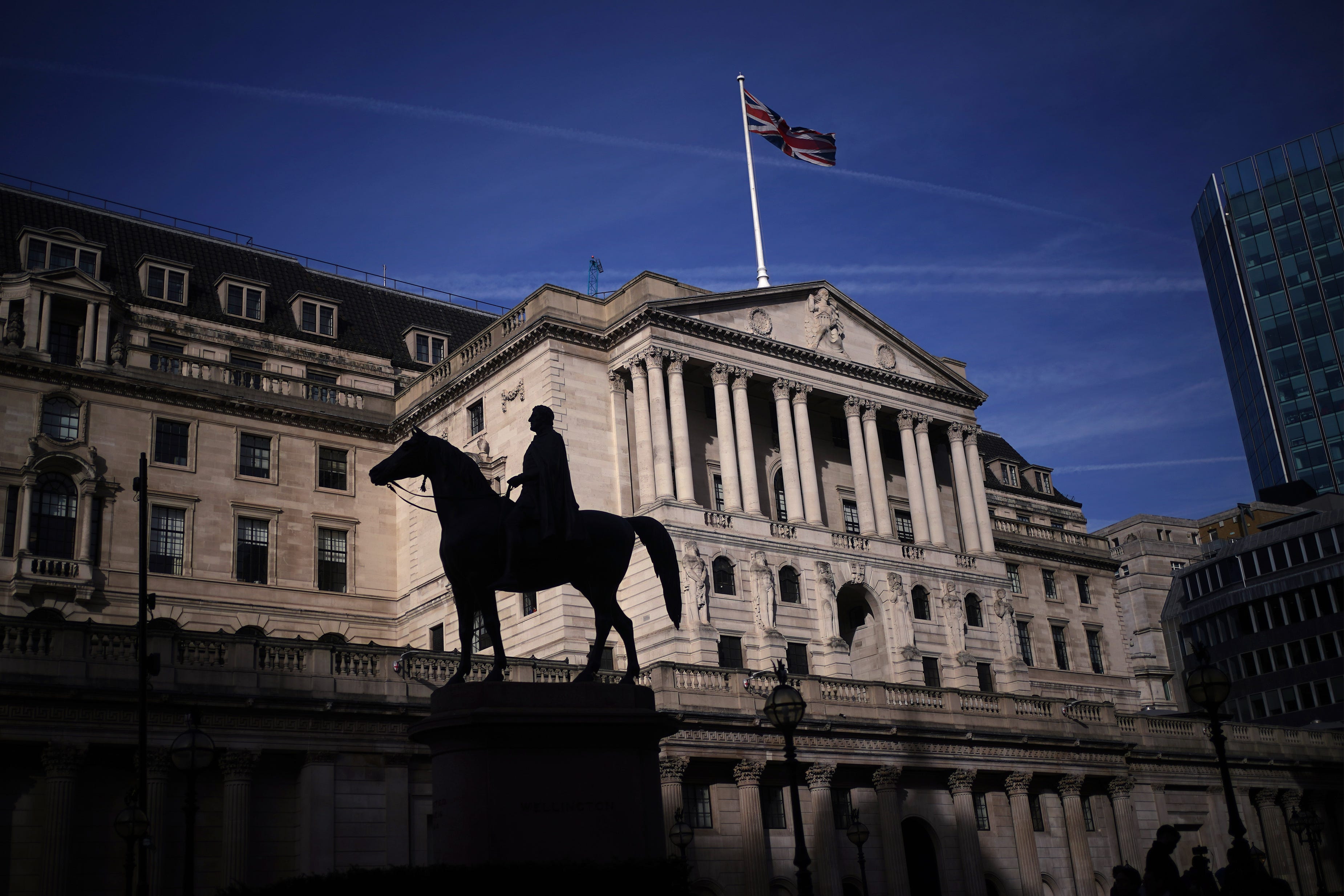Bank of England cuts interest rates as borrowing costs to fall ‘gradually’
The Bank’s Monetary Policy Committee announced that rates were being reduced from 5% to 4.75% on Thursday.

Your support helps us to tell the story
From reproductive rights to climate change to Big Tech, The Independent is on the ground when the story is developing. Whether it's investigating the financials of Elon Musk's pro-Trump PAC or producing our latest documentary, 'The A Word', which shines a light on the American women fighting for reproductive rights, we know how important it is to parse out the facts from the messaging.
At such a critical moment in US history, we need reporters on the ground. Your donation allows us to keep sending journalists to speak to both sides of the story.
The Independent is trusted by Americans across the entire political spectrum. And unlike many other quality news outlets, we choose not to lock Americans out of our reporting and analysis with paywalls. We believe quality journalism should be available to everyone, paid for by those who can afford it.
Your support makes all the difference.UK interest rates have been cut for the second time this year, as the Bank of England forecast a “gradual” reduction in borrowing costs despite uncertainty following the autumn Budget.
The Bank’s Monetary Policy Committee (MPC) announced that rates were being reduced from 5% to 4.75% on Thursday.
Governor Andrew Bailey said UK inflation falling below its 2% target meant policymakers had been able to cut rates to the lowest level since June last year.
“We need to make sure inflation stays close to target, so we can’t cut interest rates too quickly or by too much,” he said.
“But if the economy evolves as we expect, it’s likely that interest rates will continue to fall gradually from here.”
The decision is set to relieve some pressure on borrowers who have faced elevated mortgage and loan costs since rates started rising three years ago.
The MPC said it considered the autumn Budget unveiled by Chancellor Rachel Reeves last week, in particular her decision to raise taxes for businesses.
Tax rises and a higher level of public spending are expected to boost economic growth by 0.75 percentage points at its peak in a year’s time, relative to previous forecasts published in August.
The Budget is also expected to increase Consumer Prices Index (CPI) inflation by just under 0.5 percentage points in late 2026.
It means inflation will now reach the Bank’s 2% target in the second quarter of 2027, a year later than it previously projected.
There is “significant uncertainty” over the outlook for the jobs market, with businesses set to face a bigger national insurance tax bill and a higher national minimum wage from April, the MPC said.
The impact on inflation would “depend on the degree and speed with which those costs would be transmitted into prices, wages, employment” or absorbed into profits.
If businesses choose to raise their prices for consumers, this could put pressure on inflation, according to the MPC’s analysis.
Meanwhile, the impact of past interest rate hikes are still leading to higher borrowing costs for existing mortgage holders.
Around 800,000 fixed-rate mortgages with an interest rate of 3% or below are expected to be refinanced per year, on average, until the end of 2027.
Some homeowners have reduced their spending in anticipation of paying higher rates, the report said.